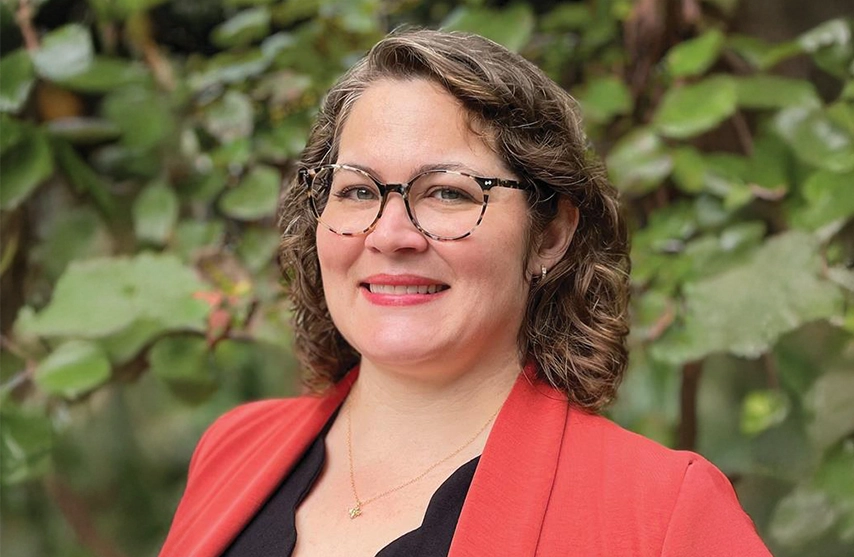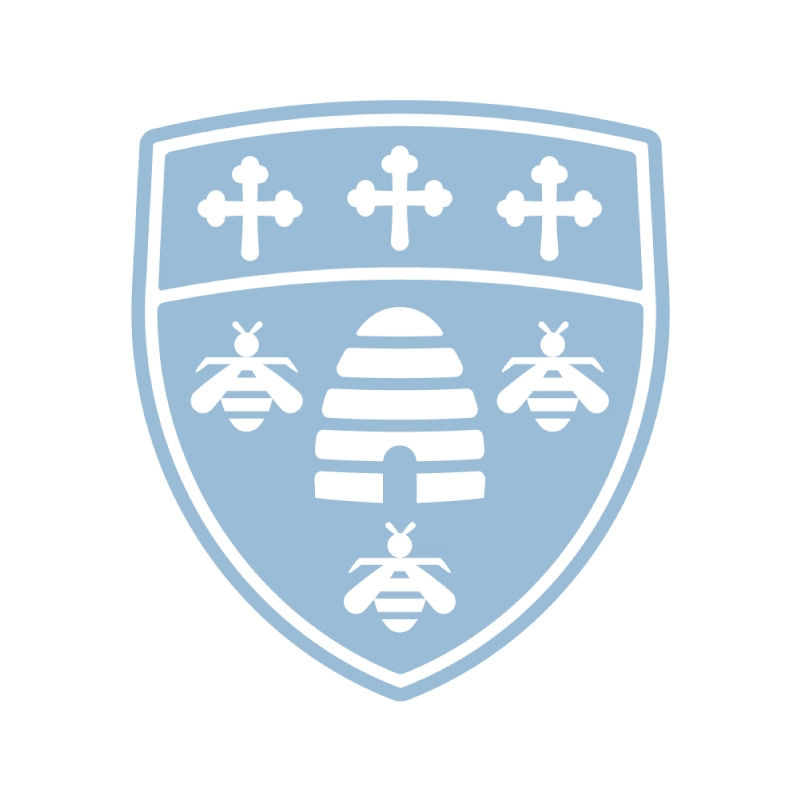Brittany Tullis, PhD, dean of the College of Arts and Sciences at St. Ambrose University, has received a prestigious HERS-Mellon Fellowship to expand her leadership skills through the national HERS Leadership Institute at Butler University in Indianapolis, Indiana, this summer.
The HERS Leadership Institute is a transformative nine-day leadership experience positioning women and people who are gender diverse to lead with a unique voice in the higher education sector. Tullis is one of eight 2025 Leadership Institute participants from the humanities to receive this competitive $10,000 HERS Leadership Fellowship award, funded by the Mellon Foundation.
This opportunity allows Tullis to learn beside and share ideas with peers who hold leadership positions in multiple areas of higher education. It also provides an opportunity to do focused work on advocacy for the humanities, work Tullis says is vitally important.
“We need humanists who can champion studies in the humanities as if the future of our lives, communities, and societies depend on it. The truth is: they do,” Tullis said. “Promoting humanistic study can help better prepare and position the leaders of the next generation to tackle the complex problems that we know are on the horizon, equipping them with the sort of deep and intertwined capacity for analysis, critical thinking, creativity, and communication skills that will help them build a better future.”
Since arriving at St. Ambrose in 2013, Tullis has been focused on creating and supporting accessible, inclusive, and equitable paths to student success. As a first-generation student herself, Tullis is sensitive to the challenges that many students face in navigating systems and processes that may be unfamiliar to them; her mission as a leader is to make pathways to achieving their goals as clear and accessible as possible. The humanities have always been her entry point to this work, and program and policy development have provided the primary means to those ends.
During her time as chair of the Spanish and Latinx Studies Department, she led faculty colleagues to create a certificate in Spanish for health and human services professionals designed to empower students entering health care fields to serve Spanish-speaking clients and communities. At same time, she worked with staff colleagues to create a new transfer credit policy to give those entering St. Ambrose with the Global Seal of Biliteracy on their high school transcripts an automatic 12 credits towards their degree.
Most recently, as dean of the College of Arts and Sciences, she’s worked alongside the director of general education and the committees she leads to develop a new learner-centered core curriculum for St. Ambrose University. As St. Ambrose University integrates with Mount Mercy University in Cedar Rapids, Iowa, Tullis is leading multiple groups across both campuses to reimagine academic programs. She sees interdisciplinary and applied humanities programs as a central component to this work, and a key part of her work at this summer’s HERS leadership institute will be a focused leadership project related to initiatives in that space.
“While this is challenging work, I think it also offers an exciting opportunity to collaborate with new colleagues committed to a shared set of values and to more effectively serve our students and their needs, as well,” Tullis said.
Amy Novak EdD, president of St. Ambrose University, has benefitted from HERS leadership development and is thrilled for Tullis to experience this powerful network of higher education professionals.
“I joined before earning my doctorate and found a community of courageous, collaborative women who were unafraid to be vulnerable and unwavering in their support. Their presence became a transformative force in my own leadership journey,” Novak said.
“It’s a privilege to nominate and endorse Dr. Brittany Tullis, whose breadth of experience and innate leadership qualities position her for sustained impact in academic leadership. She will thrive in the HERS environment by deepening her self-awareness, applying her leadership to tangible challenges, and most importantly, connecting with a dynamic network of women committed to each other’s success and the future of higher education.”
This summer, Tullis looks forward to connecting with fellow academic leaders who share her passion for leveraging the power of the humanities to bolster student success.
“As institutions face uneven declines in enrollment, fluctuations in state funding, and other moving targets, humanists need to be involved in conversations at various levels of executive leadership to help explore and advocate at the intersections of preservation, innovation, and sustainability; carving out productive paths into a future that continues to benefit from humanist study and thought.”



